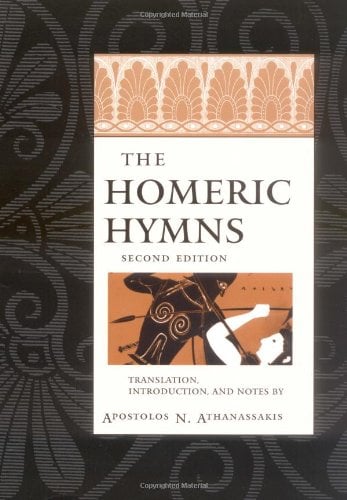
So reconstructed, the earliest period appears to us as a time of slow development in which the characteristic epic metre, diction, and structure grew up slowly from crude elements and were improved until the verge of maturity was reached.

No fragments which can be identified as belonging to the first period survive to give us even a general idea of the history of the earliest epic, and we are therefore thrown back upon the evidence of analogy from other forms of literature and of inference from the two great epics which have come down to us. This volume unites Hine's translations of the Works of Hesiod and the Homeric Hymns - along with his rendering of the mock-Homeric epic The Battle of the Frogs and the Mice - in a pairing of these important classics.The early Greek epic-that is, epic poetry as a natural and popular, and not (as it became later) an artificial and academic literary form-passed through the usual three phases, of development, of maturity, and of decline. These hymns (so named because they address the deities in short invocations at the beginning and end of each) are some of the earliest examples of epyllia, or short stories, in the epic manner in Greek. In contrast, the Homeric Hymns depict aristocratic life in a polished tone that reveals nothing of the narrators' personalities. Throughout Hine brings out Hesiod's unmistakable personality Hesiod's tales of his escapades and his gritty and persuasive voice not only give us a sense of the author's character but also offer up a rare glimpse of the everyday life of ordinary people in the eighth century BCE. Works and Days is in part a farmer's almanac - filled with cautionary tales and advice for managing harvests and maintaining a good work ethic - and Theogony is the earliest comprehensive account of classical mythology including, as it does, the names and genealogies of the gods (and giants and monsters) of Olympus, the sea, and the underworld. Summary: "This volume includes Hesiod's Works and Days and Theogony, two of the oldest non-Homeric poems to survive from antiquity.


 0 kommentar(er)
0 kommentar(er)
